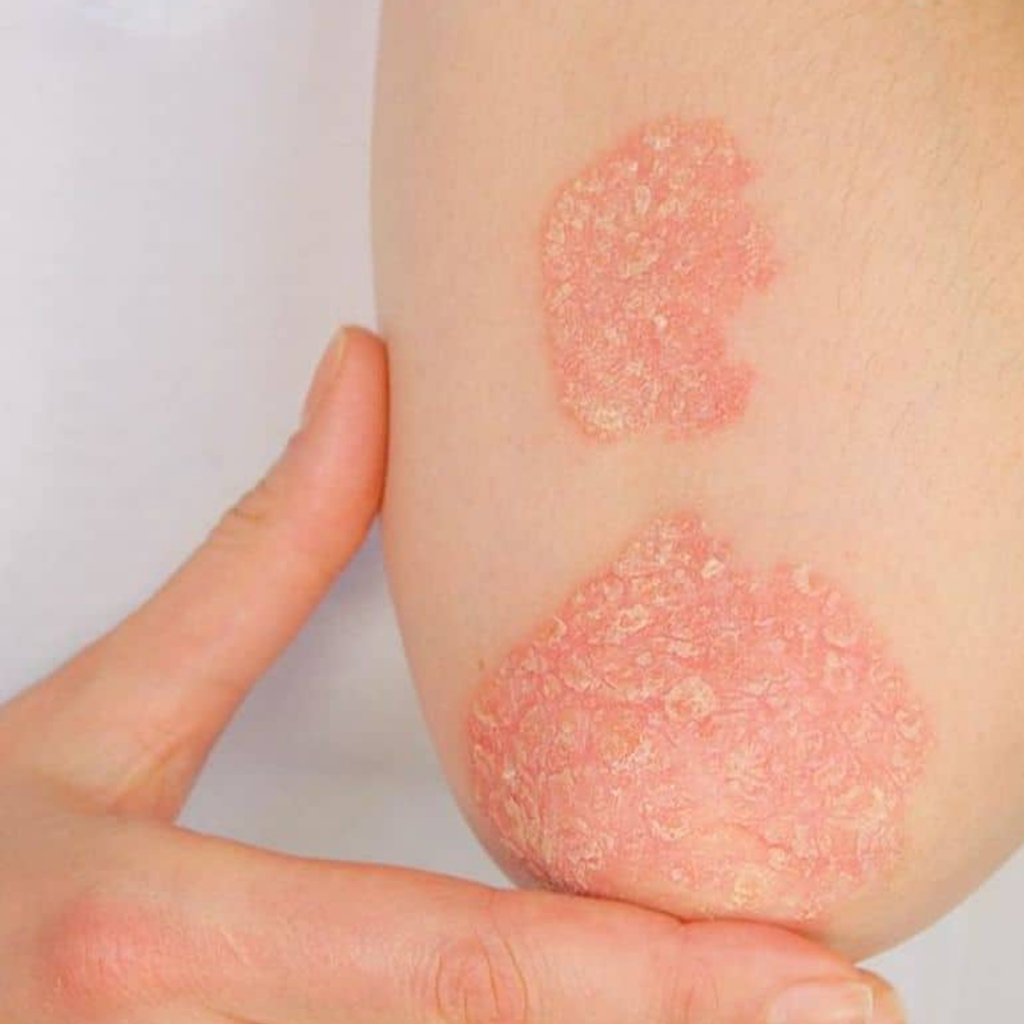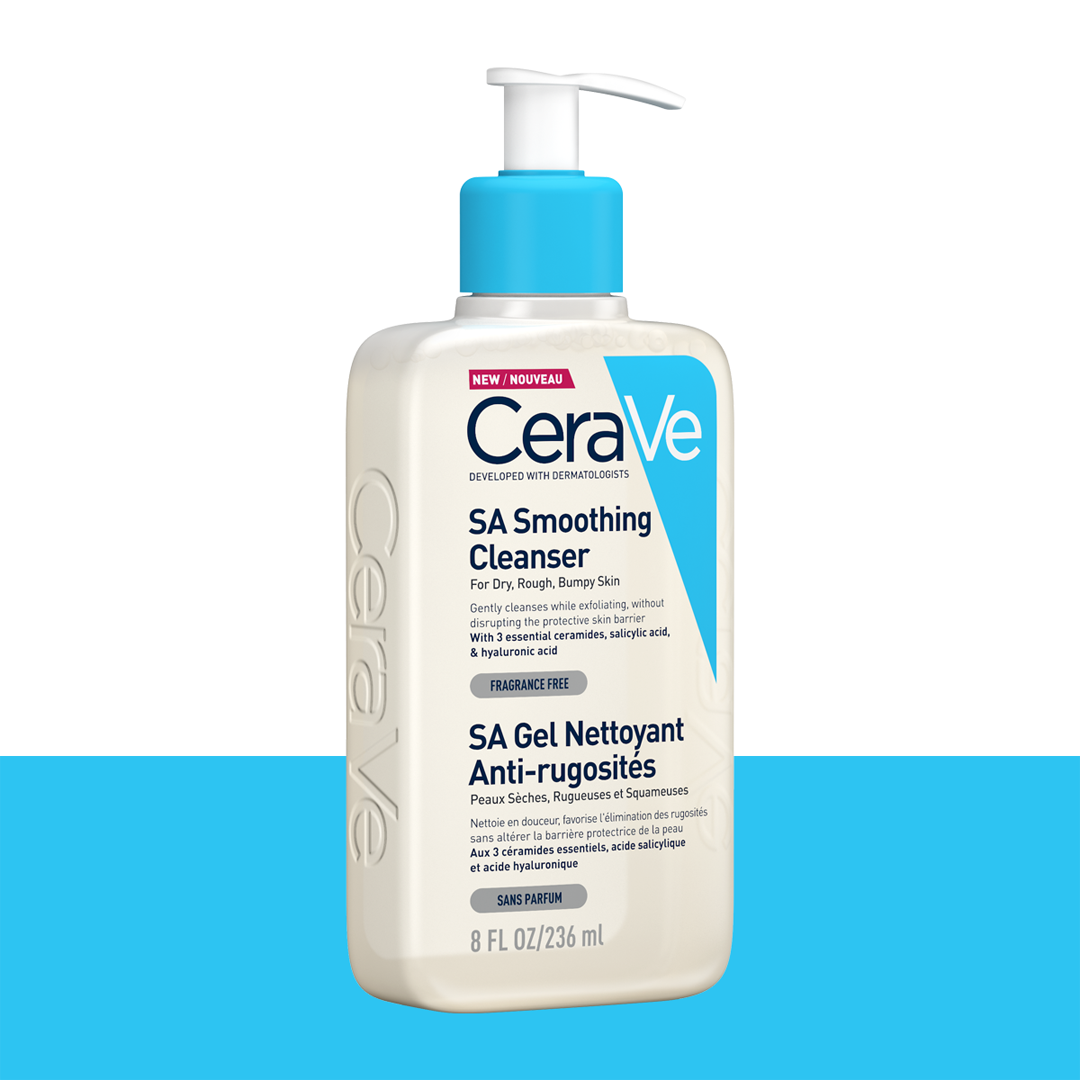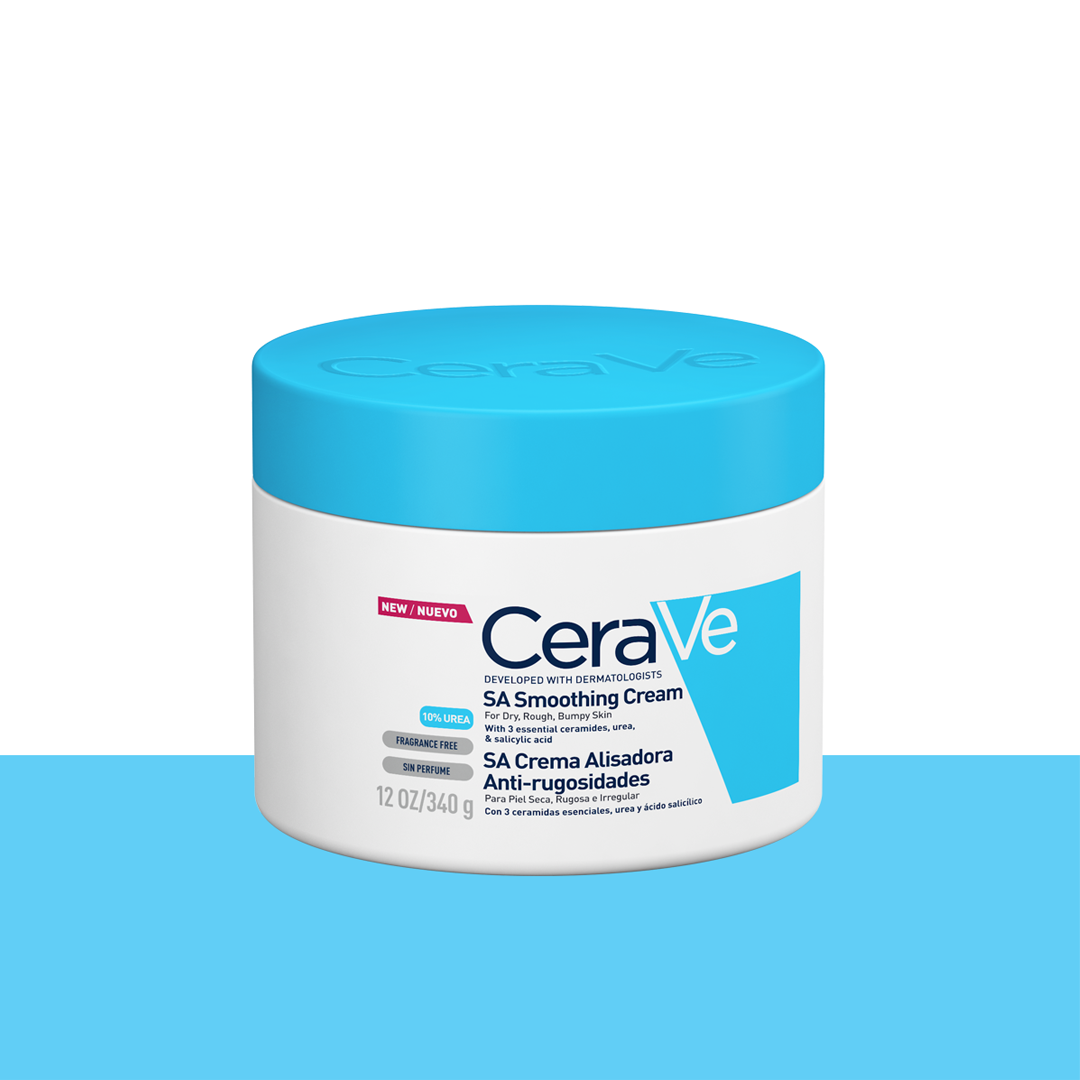What is Psoriasis?
Psoriasis is a chronic autoimmune skin disease that causes raised red, itchy, and scaly patches on the skin. The most commonly affected areas are the scalp, face, elbows, trunk, palms, and soles of the feet. The characteristic appearance is of red patches with silver scales. The area affected may range from a few spots to large areas.
There is currently no cure for psoriasis, but the condition tends to go through cycles – flaring and subsiding. During flareups, there is an acceleration in the growth cycle of skin cells.

Treatments are available to manage the symptoms and reduce the number and degree of flareups. Although the skin may appear unsightly, feel uncomfortable, and cause emotional distress, you can keep the symptoms at bay with the correct treatment.
Rest assured that there is no need to feel ashamed of your condition and cover your skin – psoriasis can happen to anyone, and it is not contagious!
The benefits of Salicylic Acid
Salicylic acid is a chemical exfoliant that provides clear, healthy skin by sloughing away the old, dead skin cells and keeping pores clean. It removes what is clogging up pores and acts as an anti-inflammatory to reduce irritation and redness, giving you a refreshed look.
The name may be familiar because it is related to aspirin, a component of willow bark that has been used for centuries for its anti-inflammatory and pain-killing properties. What makes salicylic acid use on the skin particular is its ability to dissolve in oil, making the unclogging of oily pores possible. This exfoliating action is essential because it clears up congestion and improves the appearance and texture of the skin.
Salicylic acid also tackles inflammation, reducing psoriasis’s redness, discomfort, and pain. It does this gently enough to be used daily as part of a skincare routine that caters for psoriasis skin.
Relief is here with CeraVe SA Cleanser and Cream
CeraVe SA Smoothing Cleanser is a unique foaming wash that provides immediate relief for rough and bumpy skin. It has a convenient blast of salicylic and hydrating hyaluronic acid. Its soap-free, non-irritating, and non-drying formula effectively deep cleanses the skin by removing excess oil and impurities without stripping the skin’s protective barrier.
This non-comedogenic cleanser works to clear pores and promote skin’s natural renewal with salicylic acid. Its formulation helps improve your skin’s texture and tone, leaving it visibly healthier.
CeraVe SA Smoothing Cream softens and moisturises dry, rough and bumpy skin while soothing inflammation. The skin is exfoliated gently, thanks to salicylic acid, without making it feel tight and dry. The protective skin barrier is restored for a better look and feel. Simultaneously, hyaluronic acid attracts hydration, improving the skin’s surface and helping it to retain moisture and 10% Urea which helps break down excess Keratin, which further promotes exfoliation.
Dry skin is more susceptible to psoriasis breakouts, so it is vital to use the moisturising cream as often as needed.
The MVE patented delivery system in all CeraVe products continuously releases the ingredients for a long-lasting effect between uses. CeraVe SA Smoothing Cream is fragrance and colourant-free, making it suitable for even the most sensitive skin types. It is always important to use sun protection before sun exposure.
All CeraVe products replenish the skin with 3 natural ceramides, which make up 50% of the lipids in the skin barrier.


Care for psoriasis
With proper treatment, psoriasis can be kept under control with minimal flareups. However, it is also important to avoid triggers that could increase the skin condition’s chance of worsening. These triggers vary from person to person. Common ones include cold weather, lack of sunlight, indoor heating, dry indoor air, stress, sunburn, and insect bites.
Psoriasis often has a distinctive appearance that is easily recognised by a medical professional. If you have not yet been diagnosed or have doubts about your diagnosis, you should seek the opinion of a dermatologist before going ahead with treatment.
Sources:
Psoriasis—Symptoms and causes. (n.d.). Mayo Clinic. Retrieved March 18, 2022, from https://www.mayoclinic.org/diseases-conditions/psoriasis/symptoms-causes/syc-20355840
Does Salicylic Acid Work? / What Is It? | Dr Sam Bunting—Bing video. (n.d.). Retrieved March 18, 2022, from https://youtu.be/8wHqbJQO2KQ
